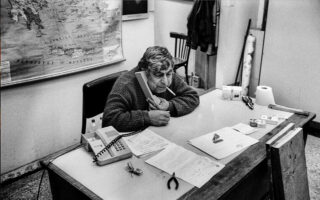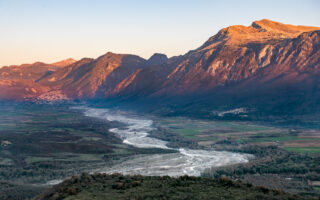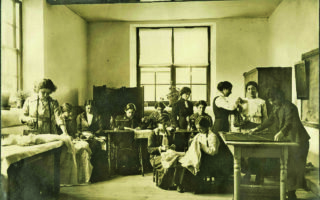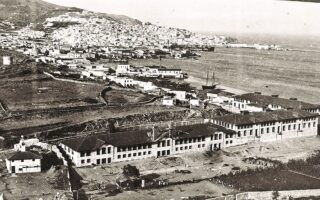Frappe, cigarettes and dusty records
Photographer Michalis Patsouras talks about his often surreal experience as a public servant, which can now be seen in an exhibition in Thessaloniki
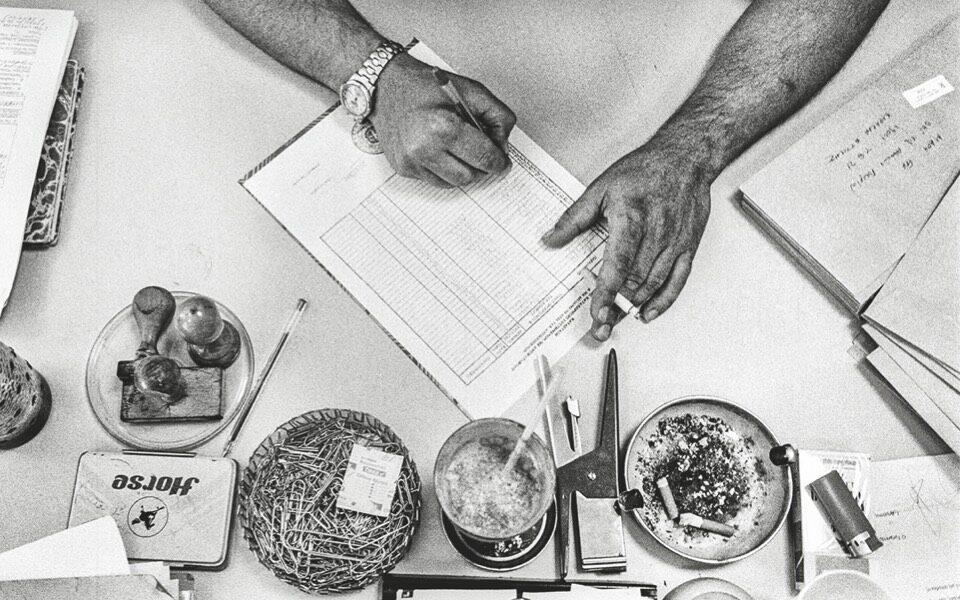
A guard dances the zeibekiko, a messenger receives greetings on his name day, with offers of whisky and cola, an employee with a Panathinaikos flag on his back leans over a coffee pot, and a storage keeper and messenger pedals on a stationary bicycle during working hours. Each image becomes increasingly surreal, capturing the daily lives of public servants.
“I was walking down the stairs to the ministry’s parking garage and noticed a partially open warehouse door. Mr Petros, a messenger, was on his exercise bike. I raised my camera and took his picture,” recalls Michalis Patsouras. A public servant himself for a decade at the old Ministry of Commerce on Kaningos Square, he had moved to Athens from Didymoteicho in Western Thrace, where his family lived at the time, to study photography.
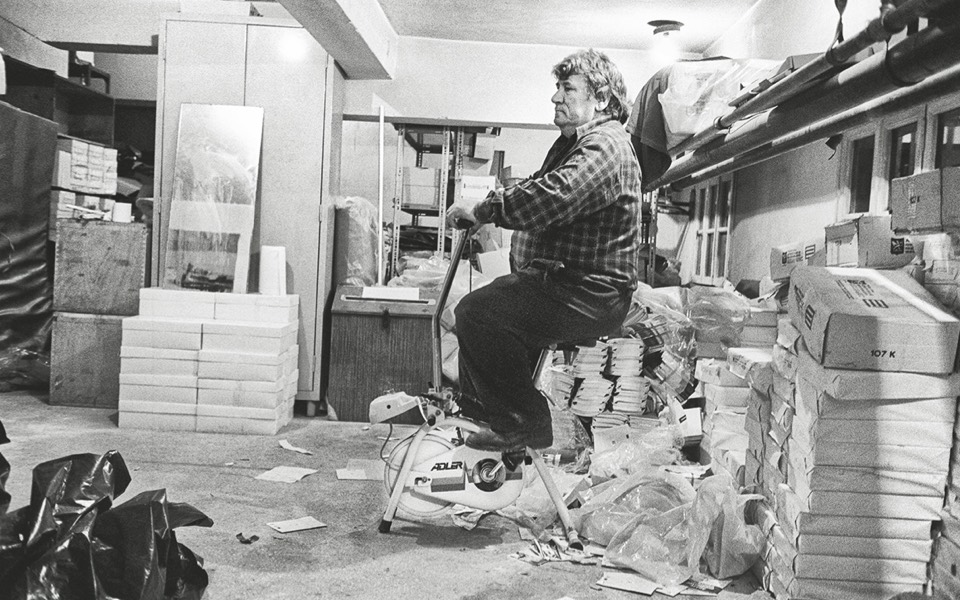
An uncle who had connections at the time placed him at the ministry in the position of technical support. “I was rarely in my office; I roamed around all the floors, repairing small and large machines, typewriters, photocopiers. Often I spent hours with colleagues until I completed my work. Some were aware that I was capturing them in my frame, but of course there were also those who didn’t notice me. Absorbed in their work or conversations, they unwittingly provided me with subjects. However, I didn’t photograph systematically; I could go two months before taking a picture.”
‘Black-and-white suited me better because everything we experienced there was gray and dull’
Impressed by documentary photography he had learned about in school, Patsouras endeavored to capture his own reality. His photos, totaling around 150, span from 1993 to 2000. Depending on one’s perspective on the Greek public sector, one can decide whether these images exclusively pertain to the past or also encapsulate moments of contemporary reality.
Could this atmosphere have been effectively conveyed with color film? Would we, in that case, find it easier to relate to the experiences we still encounter today? “Black-and-white suited me better because everything we experienced there was gray and dull,” the photographer affirms. Dilapidated walls, countless stamps, partitions made of particle board, employees concealed behind towering stacks of papers, files, dusty archives, weary eyes, and individuals drained by monotony.
“When capturing these portraits, my intention was not to classify or single out anyone. That’s why it took me so long to reveal the material, because it would have been effortless, yet unjust, to target specific employees. People adapt to their surroundings. We all gravitate toward ease and convenience. Someone seeking employment in the public sector often fails to realize they are trying to integrate into an overcrowded service. They fail to comprehend how their presence will further bolster a dysfunctional and profoundly problematic system. They don’t anticipate the stagnation, where one day seamlessly follows another, devoid of surprises. It’s a slow erosion.”
In today’s world, where you can acquire an ID, procure a copy of your diploma, replace your water heater, register a birth or death, sell your property, and obtain all the necessary documents with just a click, what would be the purpose of continuing this project? “I don’t believe the scene would look significantly different today. The restricted citizen access to public services doesn’t alter the image of the public sector or the daily routines of the individuals who serve it,” Patsouras explains. For him, the creation of a fanzine would be more meaningful. “A multifaceted art project designed to resemble a comprehensive file, featuring not attached documents but paintings, drawings, poems and texts that offer commentary on the culture of the public sector.”
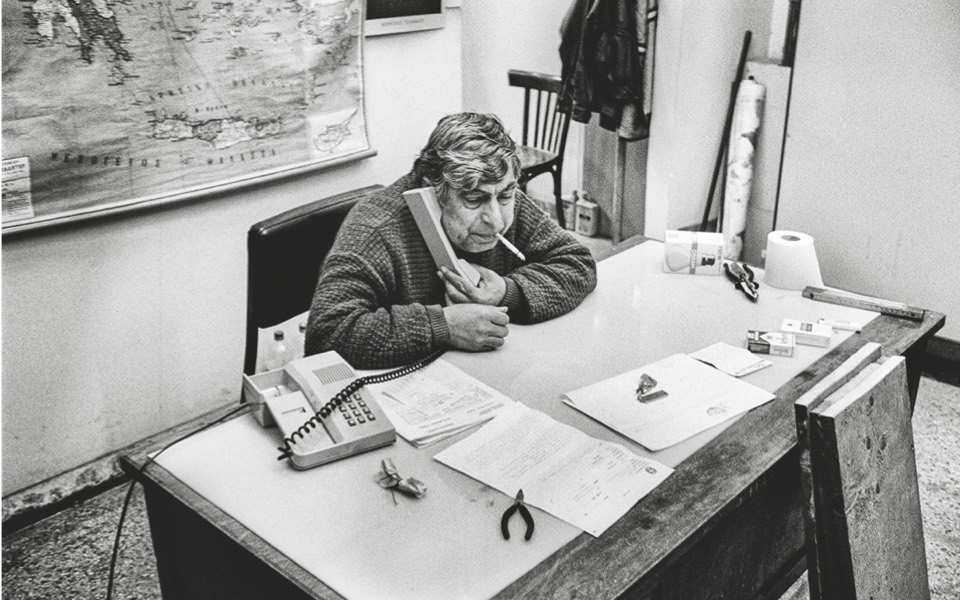
In 2000, he made the decision to leave. “Under the directive of a secretary, I was transferred to an administrative role. I shared the office with five women, and, frankly, I had no real purpose. Every document required the signature of all of us, and if one person was absent, the matter remained unresolved. I couldn’t envision my life continuing in that way, so I made the choice to resign and earn my living through photography.”
Upon reviewing his collection of material, he realized it had a story, albeit lacking a clear beginning and end. “The start was the central entrance of the ministry, and for the conclusion, I kept two versions: one depicting two employees with briefcases and synchronized strides exiting the building, while the other image showcased all the employees leaving in a disorganized manner.” How did he orchestrate that? “At the time, bomb threats at the ministries were not uncommon. Typically, the phone would ring around noon. By the time everyone had evacuated, the police had arrived with their dogs to conduct a thorough search, it was 3 o’clock, and it was time for us to wrap up.”
Emphasizing exaggeration
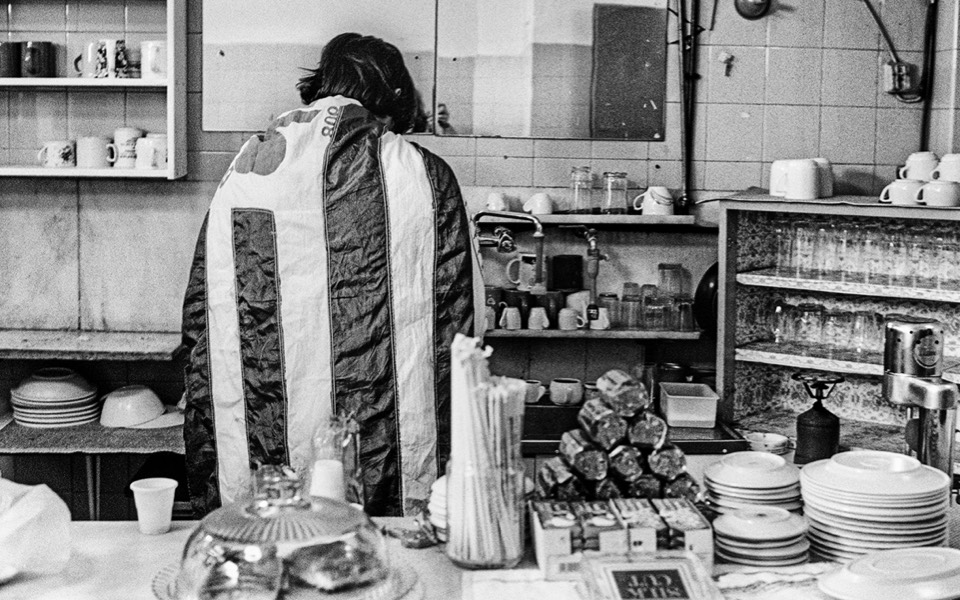
The “07.00-15.00,” the convenient working hours allowing you to raise your children, as our mothers used to say, the aspiration of many Greeks, also lent its name to the exhibition presented as part of the Thessaloniki PhotoBiennale. “We carefully selected 33 black-and-white photographs, emphasizing exaggeration,” says Panagiotis Pappas, the artistic director of the Photometria Festival and the curator of the exhibition.
So, how did the exercise bike find its way into the ministry? “Well, you see, in the past, ministers regarded their offices as extensions of their homes. They would change the furnishings, curtains, and even request exercise equipment,” Patsouras explains. “During the next reshuffle, the bicycle wound up in storage alongside Mr Petros. It might still be there.”
The exhibition will be on display until November 19 at the French Institute of Thessaloniki, in collaboration with the Photometria International Photography Festival.
